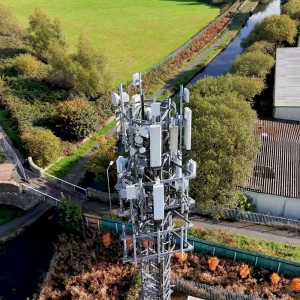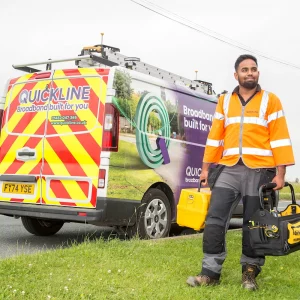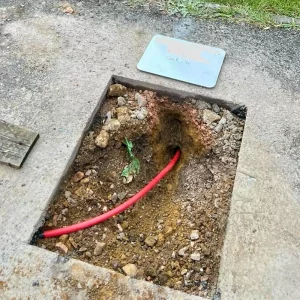Sponsored Links
KC UK Predicts Stalling of Plans to Bring Faster Broadband to Rural Areas in 2011
Posted: 15th Dec, 2010 By: MarkJ
 The Director of Consumer Services, Nick Thompson, at KC ( Karoo ), the incumbent telecoms operator and broadband ISP for Hull and East Riding (Yorkshire), has released his top 5 shortlist of 'Predictions for the Broadband Market' in 2011 and sadly it's all looking rather gloomy.
The Director of Consumer Services, Nick Thompson, at KC ( Karoo ), the incumbent telecoms operator and broadband ISP for Hull and East Riding (Yorkshire), has released his top 5 shortlist of 'Predictions for the Broadband Market' in 2011 and sadly it's all looking rather gloomy.1. The ‘arms race’ continues for headline broadband speedsWe suspect that some of KC's own customers might also predict that the operator will continue to resist calls for it to offer truly BT comparable wholesale services (WLR3 or even SMPF/MPF wholesale access) in the area and, due to this, local competition will remain weak.
Despite being a source of controversy in 2010, ISPs will continue to compete to have the fastest speeds rather than investing in rural broadband provision, and this will continue to be reflected in advertising campaigns. Despite condemnation from the Advertising Standards Authority some ISPs will continue to promote their eye-catching headline speeds.
2. Rural broadband stalls and the digital divide widens
The government will make little headway on its pledge to provide universal 2Mbps broadband in the UK by 2015, as the scale and expense of the task is fully understood. The combination of a lack of available funds, the reluctance of ISPs to invest, and the greater role of broadband in day-to-day life will lead to the digital divide widening even further.
3. The emergence of broadband migration
A lack of broadband in rural areas could become a deciding factor in where people choose to live, as having broadband becomes just as important as having hot water or electricity. As the digital divide inevitably widens with the introduction of new broadband-based services, we could also see a type of “broadband industrial revolution“, where people living in rural communities actively move to urban areas in order to get a broadband connection.
4. Broadband enabled TV will have a significant impact on the provision of broadband services and Net Neutrality
2011 will see broadband enabled TV takeoff, driven by the BBC-led YouView platform, which is scheduled to launch in the first half of 2011. Such bandwidth-hungry services will see broadband becoming an increasingly crucial part of daily life and will place greater pressures on ISPs to deliver consistent services in the face of increased usage.
We could also see ISPs introducing tighter download limits in their packages to discourage over-use and prevent significantly slower speeds across their networks. Combined with the emergence of other broadband reliant services such as telemedicine, broadband TV will play a major part in the ongoing Net Neutrality debate, and the arguments around ISPs managing traffic.
5. KC will continue to lead the way in its commitment to rural broadband
KC will continue to lead the way in rural broadband provision and will provide a minimum broadband service of 2Mbps across our entire (disproportionately rural) network by Spring 2011 - three and a half years ahead of the Government target!
Otherwise most of KC's predictions are a fairly safe bet, although Satellite operators could challenge number 2. No.3 is also unlikely to happen anymore than it already does; indeed it may even happen less if people are expecting things to get better by 2015.
Search ISP News
Search ISP Listings
Search ISP Reviews
Latest UK ISP News








Cheap BIG ISPs for 100Mbps+
150,000+ Customers | View More ISPs
Cheapest ISPs for 100Mbps+
Modest Availability | View More ISPs
Latest UK ISP News
Helpful ISP Guides and Tips
Sponsored Links
The Top 15 Category Tags
- FTTP (6717)
- BT (3862)
- Politics (3033)
- Business (2733)
- Openreach (2628)
- Building Digital UK (2486)
- Mobile Broadband (2434)
- FTTC (2132)
- Statistics (2100)
- 4G (2062)
- Virgin Media (1997)
- Ofcom Regulation (1761)
- 5G (1692)
- Fibre Optic (1586)
- Wireless Internet (1581)
Sponsored
Copyright © 1999 to Present - ISPreview.co.uk - All Rights Reserved - Terms , Privacy and Cookie Policy , Links , Website Rules































